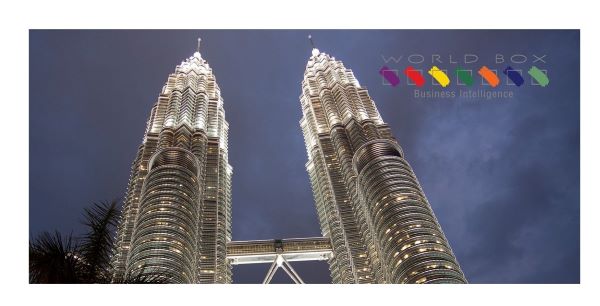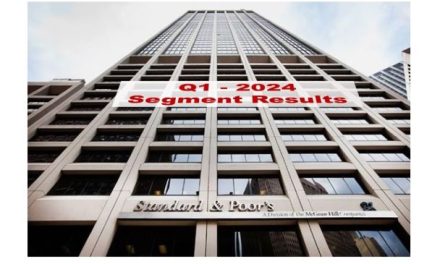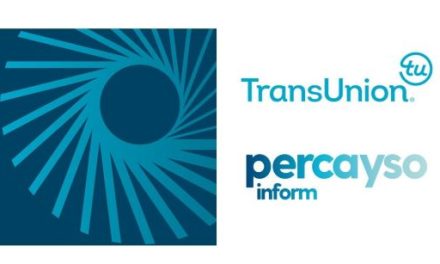Worldbox Intelligence Risk Rating January 2023
MALAYSIA
Overall Score 22 – Stable
Political risk: Stable 7/10
Economic risk: Stable 8/10
Commercial risk: Stable 7/10
The risk assessment of a country is made up of 3 components, being Political, Economic and Commercial. Each component is scored out of 10 with 1 being the highest risk and 10 the lowest.
Political Risk – Stable 7/10
Malaysia has a new, reformist-minded leader. Anwar Ibrahim was appointed prime minister after days of political negotiations following the general election held on 19 November in which no party emerged with an overall majority. The former finance minister and veteran opposition leader had battled for the premiership for 25 years, during which he was jailed twice after falling out with the Malay-nationalist United – Malays National Organisation (UMNO). UMNO had dominated Malaysian politics from independence until 2018, when a general election ousted the Barisan Nasional, or National Front coalition, controlled by UMNO.
Anwar has promised to give up his salary as PM, and has pledged to fight corruption and focus on the economy. Anwar also wants to implement reforms, including a fixed-term parliament act and a ten-year limit on the serving term of prime ministers. Anwar’s Pakatan Harapan (PH) party won the biggest share of seats but lacked enough seats to form a government. Anwar has formed a “national unity government” with the help of two other political groupings, providing the required majority. Anwar has said he has a “supermajority” of 148 out of 222 seats.
Malaysia’s current political volatility has had little impact on institutions or policies to date, and Worldbox Intelligence believes that there are unlikely to be any significant changes following the election either, hence our political risk rating remains relatively high.
Economic Risk – Stable 8/10
The COVID-19 pandemic has had a significant impact on the Malaysian economy, especially on lower-income households, as a result of strict government-imposed lockdowns. However, the economy is now rebounding with most restrictions eased or dropped from the beginning of May 2022. The country allowed quarantine-free entry for fully vaccinated travellers from April 1, ending almost two years of stringent border controls introduced to contain the Covid-19 outbreak.
The economy expanded by 3.1% in 2021, according to the central bank, rebounding from the 5.6% decline seen in 2020, when the country endured its worst downturn since the 1998 Asian Financial Crisis. In an April 2022 Article IV review of the economy, the IMF called for structural reform policies “to foster inclusive growth, address climate risks, and facilitate external rebalancing”. It added that “robust governance and anti-corruption reforms would strengthen the management of public finances and the delivery of public services”.
The OECD and World Bank have highlighted the need for greater competition in state-dominated sectors such as transport and energy as priorities. Other challenges include the declining quality of education, an inadequate supply of high-talent labour, and inadequate levels of productivity. Significant changes in economic policy are unlikely in the short-term, however, as Anwar seeks to consolidate his political position.
Commercial Risk – Stable 7/10
Malaysia rates second, behind Singapore, among the ASEAN nations in the World Bank’s Ease of Doing Business rankings. Malaysia’s global ranking is also improving: the country rose by nine places to 12th position in the World Bank index Doing Business 2020. That places it above a number of advanced economies, such as Austria, Australia, France, Germany, Japan and Taiwan.
Malaysia benefits from good infrastructure, an English-speaking business and consumer environment, and a well-established legal framework. However, the implementation of national policies varies from state to state, with Kuala Lumpur regarded as the easiest place in which to conduct business. Corruption remains a challenge: Malaysia dropped five places to 62nd position among 180 countries in the Transparency International Corruption Perceptions Index (CPI) for 2021. Transparency International, the global anti-corruption coalition, cited factors such as the stalling of institutional reforms, the discharge of several high-profile cases, limited access to information on matters of public interest, and continuing cases of abuse of power and corruption by public officials.
January Bulletin
Political Risk – Stable 7/10
The new prime minister, Anwar Ibrahim, faces tough challenges, which includes steering an economy that faces surging inflation and is experiencing a fragile recovery following the Covid-19 pandemic. He will also face pressure from an opposition dominated by an increasingly popular hardline Islamic party, Parti Islam (PAS). PAS’s long-stated objective has been to turn Malaysia into an Islamic state.
Anwar may have to compromise on his coalition’s manifesto and pledges for reform as he seeks to maintain the unity government. He will likely be able to press ahead with welfare-oriented promises – given these are supported by most other political parties – but his ambition of eliminating racial and religious discrimination that favours the majority Malay ethnic group may well have to be abandoned.
Following race riots in the 1960s, Malays communities enjoy a “special position” under the constitution, which has translated into government policies that give preferential treatment in areas such as public-sector jobs, housing and higher education. In 2018, PH was forced to backtrack on a decision to ratify a key United Nations anti-discrimination treaty after opposition from UMNO and an Islamist party.
Anwar’s appointment will be welcomed by foreign investors and the business community in Malaysia. During his tenure as deputy prime minister and finance minister during the 1990s, Malaysia became one of the fastest-growing economies in the world. During the 1997-98 Asian Financial Crisis, Anwar also implemented spending cuts and market-oriented reforms recommended by the International Monetary Fund.
Economic Risk – Stable 8/10
The deteriorating economic outlook will not make Anwar’s task in holding together a fragile coalition and delivering economic reforms any easier. The global economy is expected to experience a slowdown in 2023, with many countries falling into recession, and Malaysia’s relatively export-oriented economy will inevitably be adversely affected. In 2021, Malaysian exports accounted for 68.9% of GDP compared to a world average of 43.35%.
The economy expanded at its fastest pace in over a year in the third quarter, outpacing many of its Southeast Asian peers. The economy grew by a higher-than-expected 14.2% from a low base a year earlier, when COVID-19 containment measures curbed economic activity. A continued expansion in domestic demand, a firm recovery in the labour market, solid exports, and ongoing policy support proved the key drivers. However, these economic figures are likely to prove the proverbial calm before the storm.
Bank Negara expects GDP growth to surpass the government’s projection of 6.5%-7% in 2022, but sees growth slowing to 4.0%-5.0% next year.
The IMF has urged the authorities to focus on combating inflation, and the central bank certainly appears to be heeding that call. Bank Negara raised its benchmark interest rate to 2.75% in November 2022, the fourth rise seen during the year. The central bank maintained borrowing costs at the historically low level of 1.75% during the pandemic. The hikes are aimed at reining in inflation stemming in part from a weaker ringgit as the US Federal Reserve hikes aggressively. Inflation has been rising steadily, with the consumer price index reaching 4% in October from a year earlier, moderating slightly from 4.5% in September.
Commercial Risk – Stable 7/10
Although the COVID-19 pandemic and the associated lockdown measures badly affected certain sectors of the economy, the strong recovery is boosting cash flows, and profitability. In July 2022, for example, Standard Chartered Bank Malaysia forecast that corporate earnings are set to grow by 6% to 7% in 2023 from a year earlier, supported by the oil palm plantation and banking sectors. A shortage of workers poses one of the greatest challenges to companies, particularly in the manufacturing sector. Business associations have warned that some firms may relocate to the likes of Vietnam if the government does not loosen restrictions on the use of foreign labour.
In October 2022, Fitch ratings said that higher interest rates and a firm economic recovery are likely to enhance Malaysian banks’ revenue and profitability prospects, while credit impairments are likely to rise but remain manageable. Banks’ earnings are also poised to benefit from faster loan growth and continued easing in credit costs, added the ratings agency.
Latest economic data
About Worldbox Business Intelligence
An independent service, Worldbox Business Intelligence provides online company credit reports, company profiles, company ownership and management reports, legal status and history details, as well as financial and other business information on more than 50 million companies worldwide, covering all emerging and major markets.
Worldbox was founded in the 1980s, with the vision to become a global business provider. Its ability to deliver data in multiple languages in a standard format has strengthened its brand.
Copyright (C) 2022 Worldbox Business Intelligence. All rights reserved.
Our mailing address is:
Worldbox Business Intelligence
Breitackerstrasse 1
Zollikon
Zurich 8702
Switzerland






























